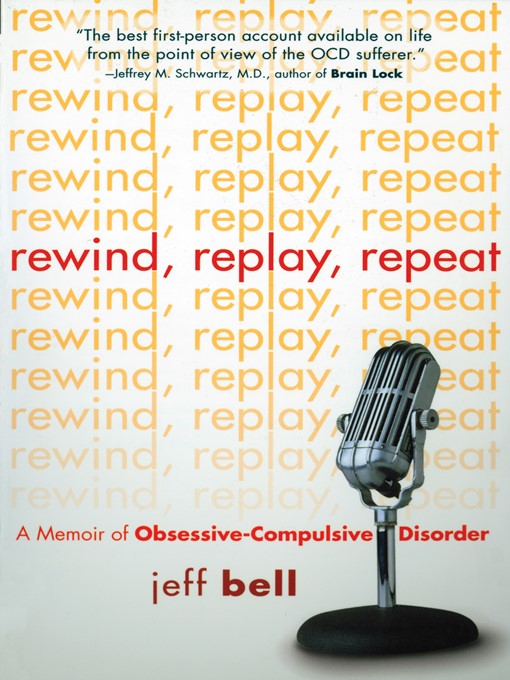
We recently spoke with Jeff Bell, news anchor and author of two relateable and informative resources for obsessive-compulsive disorder (OCD): When in Doubt, Make Belief and Rewind, Replay, Repeat: A Memoir of Obsessive-Compulsive Disorder.
We often recommend Jeff’s work to our clients struggling with OCD as his books provide unveiling insight into an OCD sufferer’s mind as well as specific skills for overcoming the “doubting disease.” As someone who has spent much of his life battling severe OCD, Jeff has had to learn how to work with his anxiety and push himself daily to face the perils of obsessions, compulsions and anxiety. He’s managed to turn his life challenges into motivation; he founded a non-profit called Adversity 2 Advocacy (A2A) to collaborate with people who have gone through intense challenges both physically and mentally, and support them as “adversity-driven advocates” as they share their stories and help others with similar challenges. The A2A website has a rich directory of inspiring stories from diverse people.
On the phone, Jeff’s voice was clear and strong; it’s no wonder he’s a news anchor. He was at the airport when we spoke, and he’s traveled around the country to give motivational talks about doubt, OCD and uncertainty. Albeit briefly, we spoke about his process of going public with his suffering (by publishing his memoir), how he manages OCD everyday, and what motivates him the most.
What’s a day in the life of Jeff Bell like?
Jeff admitted that he was probably busier than he should be now days, but was excited to share his involvement with A2A and another organization he’s co-founded with Shala Nicely called Beyond the Doubt, geared to help people, with and without OCD, better handle the gamut of uncertainties in the workplace, in health, and in everyday life.
He reported that he’s learned much better how to “navigate OCD,” and that he pushes himself at the most basic level every day; he takes the exposure front, exposing himself to his doubts and compulsions, as well as challenging his obsessions and anxieties. He called it his “scaffolding challenge”; he sees scaffolding on buildings everywhere, especially in San Francisco, where he lives. He’s also bombarded with heavy fears and anxieties at the thought of coming close to scaffolding; yet, each day he pushes himself to walk under 1, 2, 3…
Not everyday is strong, of course; Jeff says that he takes a holistic approach to his health, understanding that his OCD waxes and wanes. He notices that he is most vulnerable when he doesn’t eat well, doesn’t exercise, and is feeling run down. He reminds himself in these moments to go back to taking care of himself and his body.
He focuses his day-to-day activities on what gives him purpose; he’s realized time and again that his greatest motivation in life is being of service to others.
What was it like going from being private about your OCD to publishing your memoir and making your story available to the world?
It’s a huge step, and a difficult one. Jeff expressed the fears he had about publishing- he imagined that when he released his very private and personal story, everyone would turn into monsters, judging and ridiculing him.
He found that the exact opposite happened; he talked about how so many caring people embraced him as one their own when he “turned on the light” to being open about his struggles. There was genuine softness in his voice when he spoke about the support he got when he shared his story. He gives credit to the caring response he received from his memoir as his impetus for advocacy work.
Jeff mentioned that when he was younger, he “found himself in a book”. The book was called The Boy who Couldn’t Stop Washing. In writing the memoir, Jeff hoped that the book would similarly help “pull back a curtain,” showing others that they’re not alone, and helping friends and family understand a perspective of an OCD sufferer.
Jeff’s learned how to transform a debilitating disorder into a tool. He’s shared his story to offer voice to others who struggle similarly. As Jeff did, you can also learn to dance with doubt and uncertainty in your life. Asking for help is the first step.






